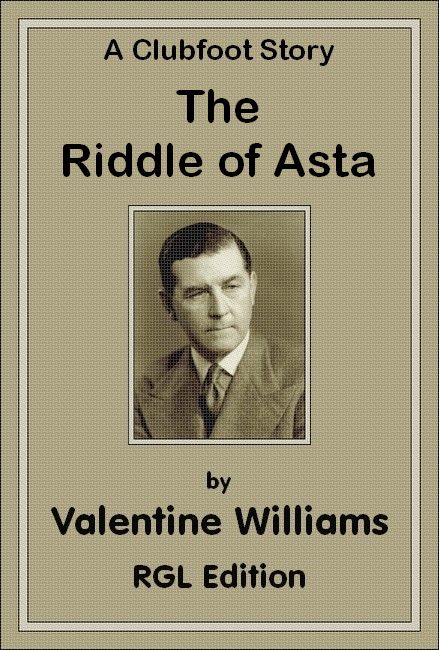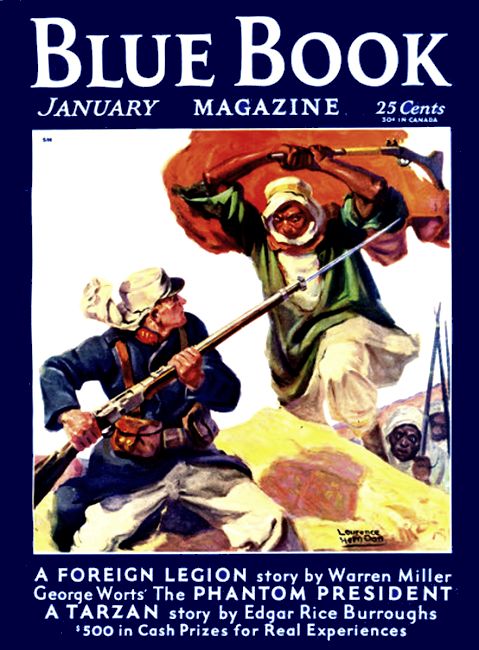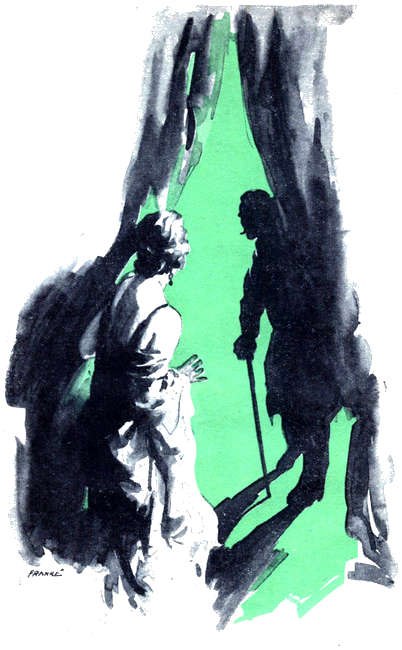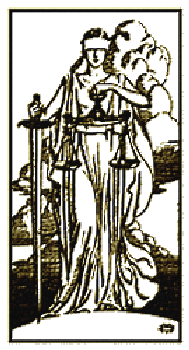
RGL e-Book Cover©
Roy Glashan's Library
Non sibi sed omnibus
Go to Home Page
This work is out of copyright in countries with a copyright
period of 70 years or less, after the year of the author's death.
If it is under copyright in your country of residence,
do not download or redistribute this file.
Original content added by RGL (e.g., introductions, notes,
RGL covers) is proprietary and protected by copyright.

RGL e-Book Cover©


Blue Book Magazine, Januay 1932 with "The Riddle of Asta"
WHILE convalescing from shell-shock suffered during the First World War, the English journalist George Valentine Williams, who served as a captain in the Irish Guards, took up writing "shockers" on the advice of the prominent genre writer John Buchan.
With The Man with the Clubfoot (1918), Williams introduced Dr. Adolph Grundt (or "Clubfoot"), who became one of the great "master criminal" villains of thriller fiction of the 1920s and 1930s and launched Williams on a lucrative career as a crime writer.
Between 1918 and 1946 Williams published twenty-five crime genre novels and two short story collections.
Many of these works are master criminal thrillers in the Edgar Wallace/E. Phillips Oppenheim mode (some with Clubfoot, some not), but some are detective novels (or at least "mystery" yarns) as well.

HER first name was Asta—her surname doesn't matter now; and she was a magnificent creature. A face that Greuze would have wanted to paint if only for the sheer beauty of its shape and its frame of shining hair, ruddy like Australian gold; eyes that had the sparkle of the morning dew; full red lips forever pouting as though to drain to the dregs every cup that came their way; and a figure of exquisite mold, yielding and supple and pulsating with life. And always perfectly gowned; heaven knows what she or somebody—it wasn't Herr Ruth alone—must have spent on her clothes!
Age? Somewhere in that splendid burgeoning that for women lies midway betwixt the late twenties and early thirties. Nationality? Danish, she said; but I judged Austrian or South German. At any rate she spoke both French and English with the same slight slurring of the r's—it was charming to hear. A creature of moods, alternately exacting and winsome, but headstrong always and, I suspected, fundamentally arrogant. And there you have the thumbnail sketch of one of the loveliest and most captivating—and most heartless—women I ever met.
Only she and I and, I suppose, whoever was in charge of the German secret service at that date, knew the true story of Hans Ruth. I must say I had a pang, that afternoon at Winchester Assizes, as I saw him taken down from the dock with a seven-year stretch hung round his neck. The sound of his feet rang hollow on the little stair, for his trial was held in camera, and the court was six-sevenths empty—even the press was shut out.
To the world at large he was just another enemy spy, a nondescript—on the charge-sheet he was entered as "Clerk." But neither his bourgeois-sounding name, nor his shabby clothes, nor the obscure background he had so painstakingly built up for himself during those weeks in which he was operating on the Scottish coast, deceived me. I had formed my own conclusions about him, based upon his well-set-up appearance, his careful courtesy and, above all, the uncomplaining stoicism with which he took his medicine. For philosophy is almost always a product of good breeding. And it shocked me to think of a man of his distinction and high character relegated for seven of the best years of his life to the society of criminals.
Though it was I who brought the police to the inn at Rosyth where he was arrested, he seemed to bear me no ill will, and in the course of a number of interviews I had with him while he was awaiting trial we became quite good friends. The Service is like that, you know, or used to be in those pre-war days—though an outsider will hardly understand. All of us, Germans and French and Russians and British, had a job to perform, and we tried to do it with the minimum of bitterness toward the individual.
Scenting a secret behind Hans Ruth's identity, I had meant to seek permission for a final interview with him after sentence. I thought he might wish to send through me a private message to his people at home. But he forestalled my intention. I was still in court when an usher plucked my sleeve to say that the judge had given leave for me to see the prisoner.
The condemned man was not downcast. But he was strangely ill at ease. He kept eying me with an embarrassed, speculative air as he thanked me again for certain small services I had been able to render him while he was in jail. I asked if I could do anything about notifying his family. But he shook his head. "I have no one that matters now," he said rather wistfully. "But if you would tell me one thing—"
"If I can, I will," I promised.
His mien was very earnest. "Who gave me away?"
He would not wait for me to put my negative headshake into words. "It's asking you to break a rule, perhaps? Well, if I give you my word of honor that nothing you say goes beyond these four walls? Let me finish! Before you refuse, I'm going to tell you who I am, so that you may know that my word is not quite valueless. But you must promise me to keep my identity secret, even from your chief. Is it a bargain, Clavering?"
"You must know that what you want me to disclose is against regulations," I replied. "It's absolutely out of the question."
A nervous gesture of the hand cut me off. "If I tell you my real name, do you swear not to divulge it?"
"I think I can promise that," I said.
By the way he always bore himself, I had guessed he was a Guard officer, and I was right. I must not give his name, but it is famous in Prussia's military history. His family had furnished a regular dynasty of officers to his particular regiment of Prussian Foot Guards, and had cast him out when, as the result of a duel, he had been compelled to resign his commission. In this duel he had killed a brother-officer—a business over a woman. (I caught myself wondering if the woman was Asta.)
"The affair was forced on me, Clavering," he said. "My hands are clean. You can trust my honor."
But the Service never reveals its sources—that's one of the first things a fellow learns; and I shook my head again. "Man," cried he hysterically, "you don't realize what this means to me. I'm not afraid of jail: what I can't face is the prospect of being locked away for all these years without ever knowing, without ever being sure—"
He lifted tragic eyes to mine. "For God's sake, my friend, answer me this one question. You needn't even speak: just move your head, and I shall understand—" He paused, then demanded hoarsely: "Was it—was it a woman?"
"Now see here, Ruth," I said briskly. "I'm devilish sorry for you, as I should be sorry for any good chap in a mess. But you're a soldier the same as I am, and you know damned well that what you want me to do is impossible."
"But I'll go mad in prison unless I know!" he exclaimed wildly. "Forget you're a soldier, Clavering, and have a little pity."

"But I'll go mad in prison unless I know!" he exclaimed
wildly.
"Forget you're a soldier, Clavering, and have a little
pity."
"Would you?" I retorted.
"You expect me to be logical when I'm almost out of my mind," he flared back. "Do this for me, my friend. No one shall ever know."
But I stood firm. Nor did I weaken when presently he told me the story of his relations with this woman whose strange fascination I had experienced myself. He had met Asta when he was on maneuvers in Silesia—she was appearing with a traveling company at the theater of the town where he was billeted. He brought her to Berlin, lavished money on her, only in the upshot to find her betraying him with his best friend. In the scandal caused by the duel she fled from Berlin, accepting a long engagement at the Thalia Theater at Warsaw. Ruth followed her there, and a reconciliation ensued. "I couldn't keep away from her," he explained simply.
Ruth said nothing about it, but I was not unaware that the Great General Staff maintained a large and active espionage organization in Poland, and I suspected that Asta's flight marked his first enrollment on the books of the German secret service. The more so when he mentioned that, six months before his appearance in England, Asta had taken it into her head that she wanted to live in London and had gone off there without consulting him. This seemed to me to explain his transfer to the Admiralty Intelligence Staff.
It was a tragic story, the more tragic to me who had seen her signature, Asta, and the surname that doesn't matter, on the back of a check for five hundred pounds. Since Judas Iscariot's day the cost of living—or should it be loving?—has gone up. Her demands on Ruth for money were incessant. To supply them, he had mortgaged his small estate in Pomerania, drawn his salary months in advance; yet he was never free from the torturing suspicion, during his frequent absences from London, that some one else was contributing toward her maintenance. I could have told him the truth; but, as I have said, my lips were sealed.
I did what I could. I warned him she was no good, begged him to try and put her out of his mind. But he would hear no word against her unless I would answer his question. And that I could not do. He wanted me to go and see her. But that too was impossible.
She had her own reasons for not communicating with Ruth; but the poor devil could not understand why she had never written to him since his arrest. And I might not enlighten him. As was only to be expected, the prisoner had steadfastly declined to answer any questions regarding the German espionage system in Great Britain, but the chief hoped that a taste of jail might render him more amenable, in which case he was prepared to get the whole or part of the sentence remitted.
Ruth did not know this as yet, and it was essential he should not discover that Asta had been in relations with us. The fact was that, though we had ascertained that the lady was not engaged in espionage herself, her continued presence in England was considered undesirable, and she had been given twenty-four hours in which to clear out—as I had the best reasons for knowing, having personally conveyed to her the chief's intimation and escorted her to the Ostend boat. She made no protest, but beautiful as always, if a shade more inscrutable than her wont, departed for an undisclosed destination.
IT must have been two months later that I ran across the fair Asta again. I was in Paris on the way home from a rather tricky job of work I had been doing for our Admiralty at the Austro-Hungarian torpedo-base at Pola. In May, Paris is at its best; I had a week's leave and a pocketful of accumulated pay; if anybody knows a better combination than that, I'd like to know what it is.
The day after I arrived, I was sampling the baby lamb at Henri's when she sailed in, trailing behind her the odd sort of old Frenchman you think does not exist outside a Palais Royal farce—corseted, dyed and generally dolled up. I had no idea she had recognized me until a waiter came across with a note torn off the menu card.
"Please don't go until I have spoken with you," I read. "It is most urgent." The last two words were trebly underscored. The note was signed Asta.
What will you? Spring was in the air and I was young in those days and then, as now, a bachelor. I knew she was a worthless drab, but she was as lovely and divinely gowned as ever and—well, you've guessed right. I was lighting a cigar when she and her old beau passed out and this time her enchanting eyes rested on my face with an imploring gaze. Before my cigar was half smoked she was back again.
The first thing I noticed about her, on seeing her at close quarters, was the expression of her eyes. It was oddly tense and I seemed to discern in those liquid depths the shadow of an unspoken fear. She sat down just as she was, in her evening wrap.
"You haven't forgotten me, then?" she said.
"No..." Now that I was face to face with her, I could not help thinking of that poor devil in jail and I found it hard to be empressé.
She laid her hand on my sleeve. "Mon cher, I have always remembered how courteous you were to me in difficult circumstances. It was odious to expel me, but you, at least, were considerate. And so I think you will be willing to help me now. I am in such trouble—"
"What's the matter?" I asked. I thought it was money; but it wasn't.
She drew her wrap closer about her and shuddered. "I am afraid," she whispered.
"Afraid? Of what?"
"Of the German secret police. They follow me everywhere. For two months already. Ever since I leave Territet—I went there from London. I have been to Italy, to Spain, to Portugal, to North Africa, even, and always this man—this terrible man—is on my track. A month ago, thinking that in a big city like this I shall throw him off the scent, I come here to Paris. I take an apartment in an assumed name: I live quietly. But the day before yesterday I see him. I make a call at a small hotel near the Étoile and he is there in the hall. I run away without knowing if he has recognized me and since then I am afraid, so afraid, that I do not eat, I do not sleep, any more."

"The day before yesterday I see him in the hall. I run away
without knowing if he has recognized me and—I am afraid."
"And what do you want me to do about it?" I questioned bluntly.
Her hand caressed my sleeve. "You know the truth about me, chéri. See this Englishman, this Captain Dunlop, was not what he pretended to be? He was rich: he liked me. When he questioned me about Hans, I naturally thought it was because he was jealous of him as a rival."
"Wasn't there a check?" I put in coldly.
"Eh bien quoi? I was pressed for money and Hans could give me no more. So Jimmee—Captain Dunlop—saw that I was worried and made me take this check to pay my bills." She flushed angrily. "How should I know how this dull Hans makes his living? He told me he was traveling on business in Scotland. Chéri, you'll explain things to this man. If Jimmee, if the Captain, were here, he would do this for me—he was always so gallant. But since he is not, I appeal to you. This man is at the Hotel Carisbrooke—a man so big like a house, who walks with a stick—"
"In the German secret police?"
"Yes, yes. And very important. You can tell that by looking at him."
I glanced at her sharply. "And lame, you say?"
She nodded. "Mais si. He has a deformed foot."
YOU will probably think it odd that in the upshot I let her wheedle me into undertaking her commission. It was not altogether her charm, however, or yet the fact that I was disposed to give her the benefit of the doubt in the matter of Ruth's betrayal—all she wanted, from him or any other man, was money and I don't believe she ever stopped to inquire how her lover earned his. It was the personality of her pursuer that interested me. This man of authority, "so big like an elephant," who walked with a stick, could be none other than my old adversary, Dr. Grundt, head of the Kaiser's secret police, the awe-inspiring Clubfoot, of whom I had had no tidings since our encounter in Macedonia in the preceding year. It gave me a curious sense of exhilaration to hear of him again, for I had believed him dead. The prospect of measuring my strength against his once more amused me.
He received me in bed—I had taken the precaution of calling early—attired in a white nightshirt and smoking a large cigar. He was considerably astonished to see me there, but his greeting was cordial enough. "So it's you, friend Clavering?" he cried. "We're on neutral territory here, you and I. Or do you come as a foe?" He spoke jestingly but I noticed that one of his large, hairy hands had disappeared under the bedclothes.
"That depends on you, Herr Doktor," I rejoined. "I've merely called to ask you to lay off Madame Asta."
"Die Asta?" He cocked his head at me. "So, so? Then I was right. She does work for you."
"You're wrong there. If it's Hans Ruth you're thinking of, we had our suspicions about him from the first. We only discovered Asta through him."
"You're not trying to tell me she didn't sell him?"
"Certainly I am. One of our fellows, with funds supplied by the office, got in touch with her and combed her out. It wasn't hard."
"A certain Captain Dunlop, wasn't it?"
I laughed. "'No names, no pack drill,'" I quoted.
"And that check?" Grundt inquired. "Five hundred pounds, wasn't it?"
I shrugged my shoulders. "All in the way of business."
"For value received?"
"Precisely."
Grundt drew reflectively upon his cigar. "The point is immaterial. The lady has displayed considerable adroitness in eluding me. But the matter is as good as settled. The advantage of Paris, my dear colleague, is that the organization of the underworld enables trifling affairs of this kind to be carried out expeditiously, without fuss,"—his bulbous lips, pursed up, discharged a long spiral of smoke,—"and at a reasonable cost."
I shook my head. "She's not even worth an apache's hire, Grundt."
The huge cripple's eye flashed. "But Ruth is. A good prize that, Clavering—one of our best men. My august employer was considerably perturbed by his fate. For the rest, the lady has been under observation since the day before yesterday. She will not escape me this time."
"Bah!" I exclaimed. "She has not a thought in her head except frocks. For an ermine wrap she'd sell herself and anybody else. And Dunlop did his work well. She'd no idea of what he was after—or rather she did not suspect that what she thought he was after was to him of only secondary importance."
Clubfoot laughed grimly. "You waste breath," he said sternly. "Ruth must be avenged!"
Then I brought out my trump. "In Macedonia last summer," I observed, "you were good enough to say I had placed you under an obligation."
Grundt nodded. "You saved my life. I have not forgotten it. Well?"
"I claim my bisque now, Herr Doktor. I want to collect that debt."
His grotesquely tufted eyebrows came together in a heavy scowl. "For a baggage like this one? Man, you can't be serious."
"I was never more serious in my life. You must let this woman go, Grundt, and we'll call it quits."
He laughed hoarsely. "Are you in love with her?" he inquired.
"Not in the least," I avowed truthfully.
"Then what?"
I considered my answer. "There are circumstances in which it is impossible for a man who has any sense of chivalry to refuse a request from a woman."
He grunted.
"Chivalry with that trollop? Fiddlesticks!"
"Nevertheless," I persisted, "trollop or not, if there have been well, certain tender passages between a man and a woman, he must necessarily feel some delicacy about standing by and seeing her murdered in cold blood."
The ogrelike mouth curled disdainfully. But then a crafty look flamed up in the hot eyes—Clubfoot's brain always worked fast.
"So?" he murmured. "Then you were Dunlop?"
I BOWED. With a loud guffaw he flung himself back upon his pillows. "Kolossal! And so she got you to tackle me!"
"She never knew that Dunlop and I were the same person, if that's what you mean. And she still doesn't know."
He laughed stridently. "Don't you believe it!" He simmered gently. "The baggage!" Stretching out an immense paw he lifted the telephone from its hook beside the bed.
"You win, Clavering," he said. "But I am still in your debt. If the little Asta goes free, it is because she has shown she knows how to use her wits in an emergency. A brain like hers is worth preserving." He gave the exchange a number. "And now I must ask you to withdraw. The party to whom I wish to speak does not care about publicity."
And as I left the room, he was cackling hoarsely, repeating over and over again to himself, "Smart, devilish smart!"
Was he right? And had she known me all along? I was destined never to learn the answer to that riddle. But Clubfoot must have had the courage of his belief in Asta's intelligence, for at frequent intervals during the war I heard of her at various neutral capitals; invariably she was associating with more or less shady individuals connected with German espionage. Then in 1919 her dead body was found in a Stuttgart hotel. She had been strangled. The murderer was never found; but I noted as a coincidence that, three weeks before, Hans Ruth was discharged from prison where he had remained throughout the war and, according to the invariable practice in such cases, had been deported from England.

Roy Glashan's Library
Non sibi sed omnibus
Go to Home Page
This work is out of copyright in countries with a copyright
period of 70 years or less, after the year of the author's death.
If it is under copyright in your country of residence,
do not download or redistribute this file.
Original content added by RGL (e.g., introductions, notes,
RGL covers) is proprietary and protected by copyright.